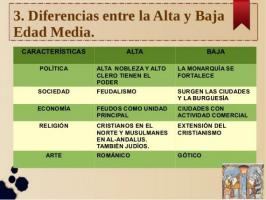Causes and consequences WAR of 30 YEARS
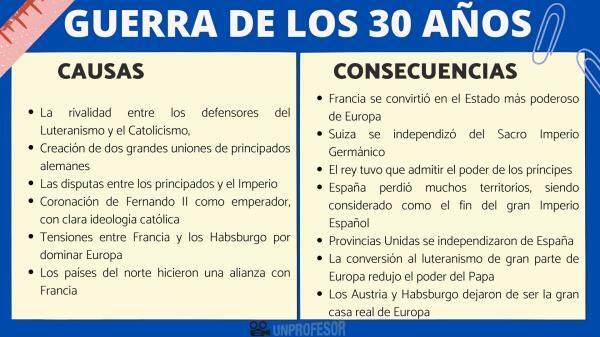
The Habsburgs They were one of the royal families with the greatest power in Modern times, occupying much of Europe and possessing an influence that few monarchical houses have achieved over the centuries. To talk about the war conflict that is seen as the beginning of the end of the Habsburg influence, in this lesson from a Professor we must talk about the causes and consequences 30 years war.
Index
- The 30 Years' War: short summary
- Causes of the 30 Years War
- Consequences of the 30 Years War
The 30 years war: short summary.
The 30 years war it was a framed european war between the years 1618 and 1648, in which all the major European countries participated; it was one of the greatest conflicts of the Modern Age. The reasons for the war were the confrontation between the States of the Reform against those of the Counter Reformation, although the religious reasons over the years were changing until they were almost completely forgotten.
The 30 Years War is known for its long duration and for all the events that took place in it; therefore, we must list their various stages in order to understand its importance. The phases of the war were as follows:
- Bohemian phase: The revolt born in the Bohemian area spread to other countries until the war began.
- Danish phase: The Catholic victories in the first phase made the Protestants ask the Danish king for help, but Denmark was defeated by the Germans who were on the Catholic side.
- Swedish phase: The next Protestant enemy to face the Germans was the Swedish king, possessing one of the great European armies. Still he couldn't do anything against the Germans and they lost too.
- French phase: The time when after changes in the throne both sides reached a kind of peace
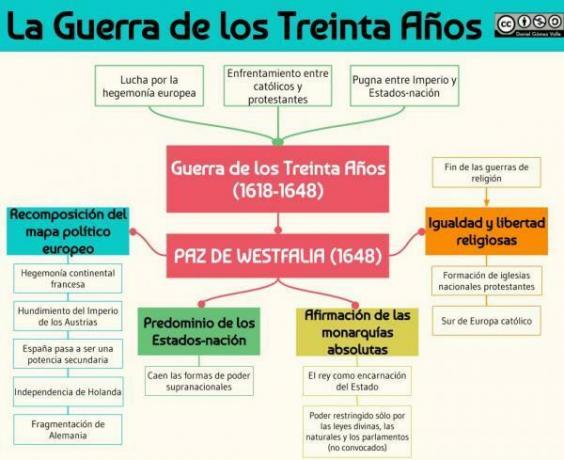
Causes of the 30 Years War.
The 30 Years' War was the consequence of numerous causes that occurred in modern Europe, the main one being the religion. But the context is much more complex and difficult to understand, so it can not only be considered as a holy war. The main causes of the 30 Years' War were the following:
- The rivalry created in the Holy German Empire by the defenders of the Lutheranismand the Catholicism, since each German prince could choose the religion of his principality.
- Creation of two large unions of German principalities, each with its own religion, and with great disputes between them.
- The disputes Between the principalities and the Empire it was constant, since the former increasingly wanted greater independence from the emperor, while Ferdinand II wanted to unify the empire.
- Another cause of the 30 Years War was the coronation of Ferdinand II as emperor, with clear catholic ideology. This fact started a series of revolts throughout the region by the defenders of Lutheranism.
- The tensions between France and the Habsburgs By dominating Europe it grew for years, since both royal houses wanted to become the hegemonic state of Europe.
- The Northern European countries They were afraid of the enormous power of the Holy German Empire and, therefore, they thought that a alliance with France it would help reduce their growing influence.
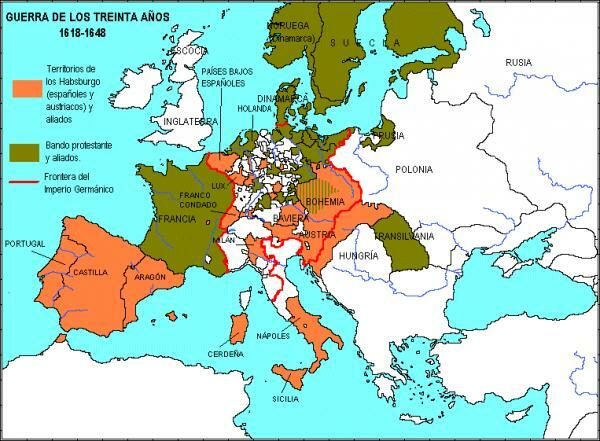
Image: Ancient World
Consequences of the War of 30 years.
To conclude this lesson on the causes and consequences of the 30 Years War, we must list all the changes which brought the end of the war to Europe, being considered one of the most influential conflicts of the story. The main consequences of the 30 Years War were the following:
- France, thanks to his victory in the war, he became the Most powerful state of Europe, initiating a process of hegemony that would lead to numerous victories and enormous influence.
- Switzerland became independent of the Holy German Empire, being born a key neutral state for world history, reaching this influence from neutral to the present day.
- Another consequence of the 30 Years War is that the king had to admit the power of princes, losing his idea of unifying the Empire and initiating the decline of the figure of the German emperor.
- He kept the lreligious freedom in the German zone, while Catholicism remained the religion of southern Europe.
- Spain lost many territories, being considered as the end of the great Spanish Empire and initiating a constant change of monarchs with little power until the arrival of the French Bourbons to the Spanish Crown.
- Another consequence of the 30 Years' War is that United Provinces became independent of Spain, forming an important European state.
- The conversion to Lutheranism from much of Europe he reduced the power of the Pope, who was no longer the great authority as before.
- The Austria Y Habsburg They ceased to be the great royal house of Europe, initiating a process that would lead to their disappearance after the passage of time.
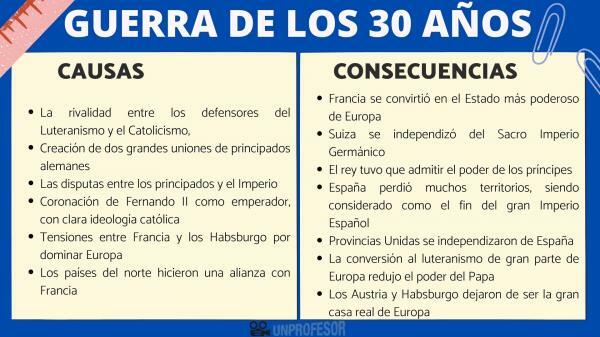
If you want to read more articles similar to Causes and consequences of the 30 years war, we recommend that you enter our category of Story.
Bibliography
- Elliott, J. H. (1999). Europe after the Peace of Westphalia. Pedralbes: modern history magazine, 131-146.
- de Villalba, M. AND. D. V., & Carrillo, A. C. R. (2015). Ferdinand II of the Holy Roman Empire. SEECI Communication Magazine, 95-110.
- Orozco and Berra, F. The 30-year war. Volume I.

